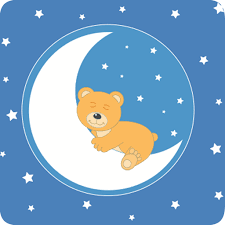Ep:1 Nathan’s Interview with Johanna
EP:2 Sue’s Interview with Tey
Full ver.
Johanna is my sister and interviewee for this podcast. The reason I chose her for her interview is to focus on how her child (who listens to lullabies) feels about this topic, which I think many people will interview her parents or older generations. Because I thought it would be more fun.
As I was preparing for the interview, the process of selecting a few questions was difficult. Some of the questions are so broad that Johanna doesn’t seem to think much of the answers. During the interview, we showed mutual agreement on some topics and disagreement on others. Also eg ‘Can you sing your favorite lullaby for me and the podcast?’ I had something like that. But I didn’t have high expectations because I thought she wouldn’t sing a lullaby, and it turned out to be true. But in her podcast I have, I put the music files of Johanna’s chosen lullaby. It was a lullaby that was very familiar to people of our culture (Korean) and everyone knew.
Lullabies are the oldest memories of her music and come from her mother. The beginning of the first music for a child is very important. Her first and favorite lullaby is ‘Island Baby’. We were in the same family and shared the same culture, and I think most of what she experienced was also what I experienced. In particular, I think that the experience of a lullaby close to the family is almost the same. Through that experience, I was able to see what image she had of her lullabies. Our parents were both working parents, and when I was young, my parents often came in very late. The lyrics to ‘The Island Baby’ were about a lonely sleep in her home while her mother worked at the sea. She emphasized that the lyrics of her song and her own plight were the same, and I could understand that feeling. In my memory, when she was young she didn’t express herself well that she wanted to see her parents. However, it was her feelings that were hidden, and in fact, she found out that her parents had been looking forward to a quick return.
As I went through the interview, I found that my questions were almost useless. We grew up sharing the same things, but our thoughts and feelings were different. I had a deep sympathy for a particular lullaby, ‘Island Baby’, but I didn’t have as much sentimentality for her as she did for that lullaby. In particular, their thoughts on music were different. When I put classical music in the question, they said that I wanted to get sympathy for the image of a lullaby that I thought, but it didn’t look very similar. We also felt that we had different tastes and thoughts. She likes genres like pop, hip hop and R&B, but I like music like classical. I think these different musical tastes made this interview more interesting. Johanna’s main idea is that a lullaby is a song you listen to when you sleep, and it should have a relaxing rhythm, melody and lyrics. For example, they thought that upbeat song lyrics or beats disturbed their sleep, and the aggressive words of hip-hop might have a negative effect on children. She also argued that music with a slow, proper tempo can be used as a lullaby, even if it is not a traditional lullaby. On that point, I agree with her idea. Although not included in the interview podcast, ‘Memory’ from the musical ‘Cats’ was recommended as a good lullaby. The reason I chose it was because I thought there was a good lullaby role. I looked at the questions I thought about classical music from a similar point of view, partially agreed, but pointed out that not all classical music has an element of lullabies. In my opinion, I agree that music like Schubert’s ‘Erlkönig’ will surprise kids. In other words, it was concluded that the essential elements of a lullaby are that the rhythm, melody, and lyrics of the music should be appropriate, regardless of the genre of music.
As a child, lullabies helped Johanna fall asleep. It is very important from a children’s point of view. As a child, she was afraid of being alone or of the dark. But things like her lullabies gave her courage. Among such lullabies, an interesting lullaby appears. In other words, they are stories made on CD, which were the early audiobooks. She explained that these audiobooks also worked as she used them as her lullabies. She said that she used the stories and songs from there as lullabies to overcome being alone and in the dark to sleep. She doesn’t know if those things affect children’s development, but I think it can affect children’s personalities. Here me and Johanna did not agree with each other. In my opinion, audiobooks play an important role in children’s creativity and language development by telling stories they love. Because audiobooks for children are not just a story, but a comprehensive art that combines music and acting. I think the reason she liked these story audiobooks was that our parents often read them to us and I think it acted like a lullaby. I think this culture is also global.
What I felt through this interview is how she feels about her songs and her thoughts on her lullabies. This interview allowed me and my brother to draw conclusions about what lullabies are like. She said that the lullaby was her first musical memory. That’s the most important part I thought. Because, I think this is common to all mankind. Almost every culture I know sings lullabies. It means that most musical memories in the world are lullabies that are inherited from their parents. Therefore, it can be said that lullabies have a lot of influence on children. Because it is the first song that children sing when they meet for the first time. For children, lullabies are a means of overcoming fear and the first step in learning music.



